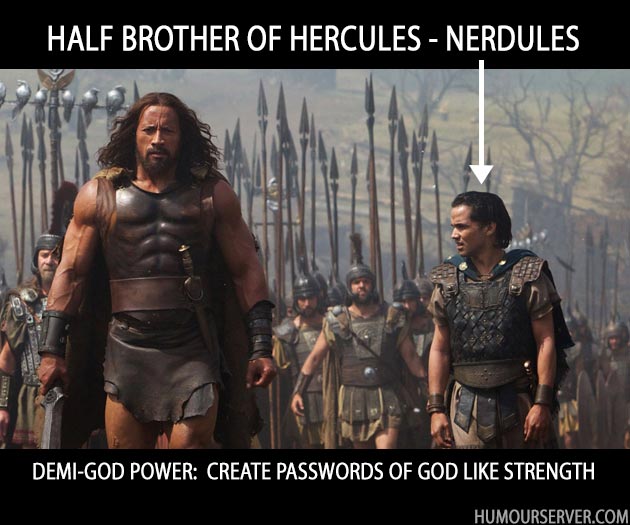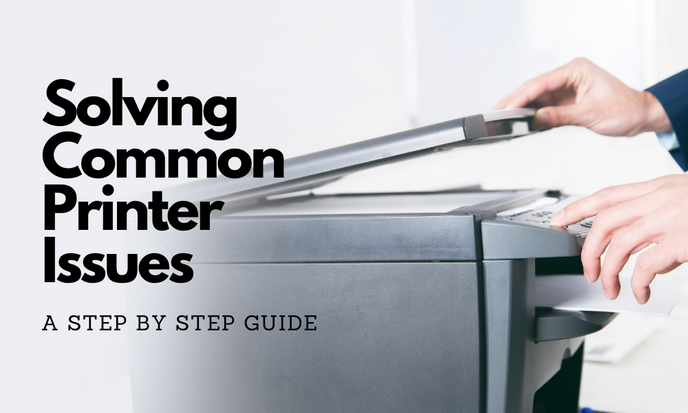Jul 16 2014
Your passwords are the keys to your digital kingdom and they’re secure because they’re stored only in your mind grapes and not on a piece of paper in your pocket or on the side of your monitor. So unlike normal keys, passwords are a pleasure to lug around, even in tight jeans and are only as easy to lose as your mind.
For all the great things about passwords or digital keys, they aren’t without their disadvantages compared to a traditional pointy metal jangle key. If someone was standing at your front door trying millions of different keys hoping to get the right one to open your door, the time they took, not to mention the incredible size of their key ring would probably give you time to cotton on to their plan and politely ask them to leave; however you can be completely oblivious to someone trying to crack your password online until it’s too late. On the bright side, there is little chance a nogoodnik will figure out how to fashion your safe key by knowing the name of your favourite movie.
Make your password Memorable
Making memorable passwords is a must, because human memories aren’t that great, let’s face it, you can’t even remember the title of this article. This can make maintaining good password protocols a tough exercise, especially if you’re a fair way into your internet life, it’s tough to come up with new memorable things every time you find out about a new service that’s popped up online. You might not have anything more to give.
There is often the option of logging in with your Facebook or Gmail account, but unfortunately this convenience will be of little consolation to you when every account you own has been hacked at once, allowing hackers to delete all your funny YouTube videos and post to Facebook views on Tony Abbott’s leadership that you may agree with, but don’t want out in the public domain.
Tip: Making a password longer, exponentially increases the difficulty to crack it. The easiest way for us humans to make our passwords long is to make them into phrases.
Example: Gmailis5letters&no#s or perhaps : ILike2get(email)
Pro Tip: Don’t use these two.
Password Strength
Sometimes when you enter a password the site will tell you how strong it is. Unfortunately for those competitive souls out there this can lead to a 20 character password of random numbers letters and symbols just to get a high score, which may require years of regressive hypnotherapy to remember.
Tip: Don’t push yourself too hard, if you don’t think you’ll be able to remember it, then there’s really no point in it’s added security, unless you also want to be locked out along with everyone else.
Key Master
Sometimes being a cryptographic genius is warranted, say if you work as an online security manager or find yourself sent back in time to be an Enigma code breaker in World War 2. While in those situation having 6 levels of randomly generating passwords is good form, in your personal life, the time it will take you to log in to gmail might actually negate the time saving value of email over traditional mail.
Still you do need to include numbers, symbols and CAPITAL LETTERS to make your password that much stronger. Just adding your favourite number to the end isn’t enough. By substituting letters like i’s with 1’s, and e’s with 3’s, or even consider L’s as rotated 7’s you can turn a simple password that you may already remember into something no one can crack and makes you seem 733t (1337 if you prefer Leetspeak).
Password Managers
Considered an easy option, Password Managers offer users the ability to store their usernames and passwords to any site. This means instead of having to log in to the particular service you can simply enter your password manager login details and gain access.
While this is quite convenient, it is also quite similar to using the same password for all your accounts as getting access to your master password will leave all your accounts vulnerable. If you still like the idea then you should try and make the password manager password as strong as possible, by using all the password tips you can find. Or make sure you have 2-step verification enabled.
2 Step Verification
If you’re looking for some extra security, then you should try 2 Step Verification. It improves your security by adding an extra layer. You not only need the right password, but also to have access to either an email or mobile phone number. When you go to login on a strange foreign device you will then receive an instant message with a randomly generated code number, which you will then have to enter to get into your account.
While this can take longer to log into your device, if you use your mobile number, a hacker would need to have access to your phone, thus excluding any hackers not in the vicinity. This added security can even make your account with a password of 12345678 hard to crack.
Tip: If you access your accounts regularly from a personal device you can make that device trusted so you don’t need to perform 2 Step verification more than once.
Pro Tip: Microsoft, Google, Facebook + a lot of other big web services, offer 2 step verification, so if you’re using those accounts to log into numerous other services make sure you protect yourself.
Regular Password Changes
The bane of all good passwords is the suggestion that for security reasons you need to change your password regularly. If we’re honest with ourselves, this is something that only password zealots actually do. Mainly because we’ve got other things on our mind, for example, meeting hot dog eating competition entry requirements. We also don’t regularly change our passwords because it’s just too hard. If you did what is recommended, you’d only just finish learning your passwords before having to change them to something different.
The main reason behind needing to change them is not security from outside hackers, it’s actually from people you know. It happens mainly in office’s when someone needs a file and it’s only on your computer. Then have to give them your password so they can access it.
So if you’ve come up with a password which you really like, don’t share it with anyone. Then you will reduce the need to change it. If someone needs a file, share or send it to them. If you have people accessing your computer, set up a guest account whose password you can bandy about. Fortunately with the advent of Office 365 for business you’ll be able to access all your files from the cloud and share them too. If it’s good enough for Byte Grylls then it’s good enough for you.
If you want to get serious about Office 365 then check out Office 365 below.









